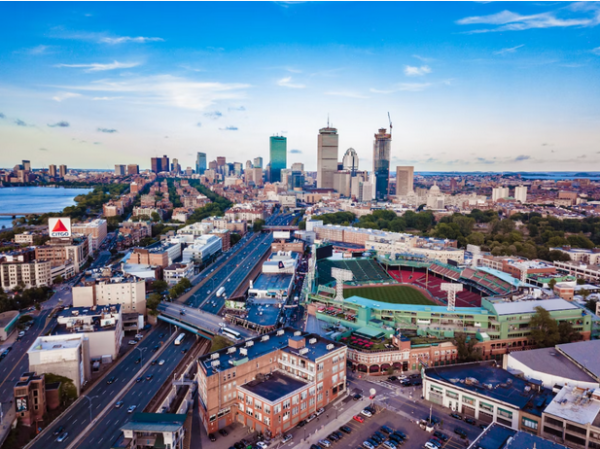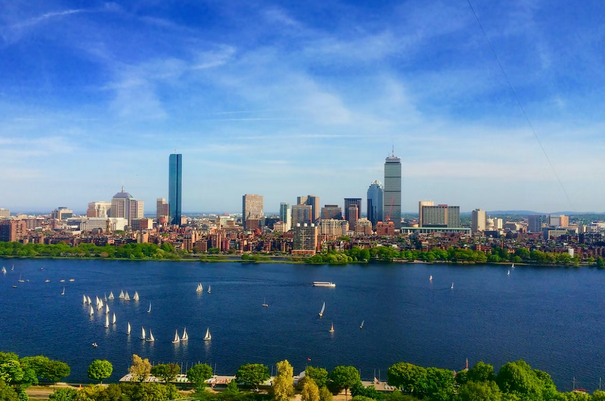In recent times, the Boston commercial real estate sector has raised eyebrows. There are many more empty spaces in commercial buildings than we have seen in the last ten years. This means that a lot of places where companies usually set up their offices or stores are currently sitting vacant. This situation persuades us to explore the reasons behind this remarkable change.
In this discussion, we will highlight the factors driving this change. Also, we will explain the impact of these changes on the city’s economy and real estate market.
Vacancy Levels In Commercial Buildings In Boston Are The Highest In A Decade
In Boston, almost one-third of commercial buildings were built after 1995. Right now, all the offices in Boston put together cover an area of about 110 million square feet. A long time ago, around the early 1990s, there was a big money problem called the savings and loan crisis. This caused a huge need for office spaces before computers and the internet became more important. Because of that, we now have more offices in Boston than we really need.
Several top brokers in this city reported that the increase in the vacancy rate for commercial buildings has been influenced by various factors. Since more people are working from home, there’s not much need for office space. In fact, almost 20% of office space in Boston’s metro area is empty right now, which is more than in the 2008 recession. So, the downtown area seems a bit empty these days.
This shift in work patterns was boosted by Covid-19. Since the pandemic began, there have been more ups and downs in the real estate market in Boston. Thanks to the advancement of technologies like Microsoft Teams, Google Meet, and Zoom, workers can join important meetings from home. Ultimately, the digitization of work and the rise of virtual collaboration tools reduced the need for large physical office spaces.

Almost 15% of businesses left their corresponding commercial spaces at the end of 2022. During this time, the cost to rent these places went down by 1.1%, as said by a brokerage firm named JLL. Also, CBRE (a leading brokerage in Boston), said that around 12.5% of these places were empty. Another company called Colliers said it was even higher, about 17.6%.
But wait! There is another problem in Boston – not enough places to live. Rent for commercial spaces is getting really expensive. Currently, the average cost per square foot for office space to rent is roughly $40.59, according to LoopNet. Hence, living in the city is getting harder.
On top of that, flexible workspace solutions and coworking spaces are growing continuously. Businesses have found alternatives to traditional office leases because of this tendency. Companies became more open to adopting flexible leasing models. As a result, the demand for long-term commercial leases was further impacted.
All these factors combined created a situation where there is a higher supply of office spaces compared to demand.
Consequence Is: Office Spaces Are Being Turning Into Residential Properties
To tackle the vacancy issues, office spaces are being transformed into residential properties in Boston. Experts think it is adaptive reuse to convert office spaces into residential properties. Converting existing office buildings into residential properties aligns with sustainability goals by repurposing structures instead of constructing new ones. As a result, the requirement for new residential construction can be reduced.
Moreover, this approach can minimize waste and lessen the environmental impact. Some cities, including Boston, are already adapting zoning regulations. Boston is starting something called the Downtown Office to Residential Conversion Pilot Program.
Basically, this plan encourages builders to convert their empty office buildings into places where people can live. Those in charge of the program believe it will solve the housing problem and revitalize the downtown area. This can make the process more attractive to property owners and developers. Consequently, it will be easier to repurpose office spaces into residential units.
Like many other major cities, Boston is experiencing a shortage of affordable housing. To some extent, repurposing office spaces into residential units can address this housing shortage. Perhaps, it can provide a variety of housing options for different income levels.
Turning office buildings into lab spaces is a growing trend, which is also being applied in Boston. Just in the 128 Central areas, more than 12.8 million square feet of office space have been changed into labs since 2018. There were lots of deals for lab rented spaces, exceeding more than 20,000 square feet until the end of 2022. Also, some major deals occurred in 2023. For example, a place that used to be an office for the State Department of Revenue became a lab for studying blood and tissues at 100 Trade Center in Woburn.
Overall, transforming vacant or underutilized office spaces into residential units can contribute to urban revitalization efforts. Converting these spaces into housing can bring more people into the city center.
To wrap up, due to changes in how people work and other reasons, the number of vacant spots in Boston’s commercial buildings has reached levels that we haven’t seen for a long time. This situation can have an impact on how the city’s economy works. It is important for businesses, property owners, and the city to adapt to these changes to make the most of this situation.
If you need office space in Boston or anywhere in the US or Canada, our team of local tenant reps can help. Let us know what you are looking for and we will get right to work.

